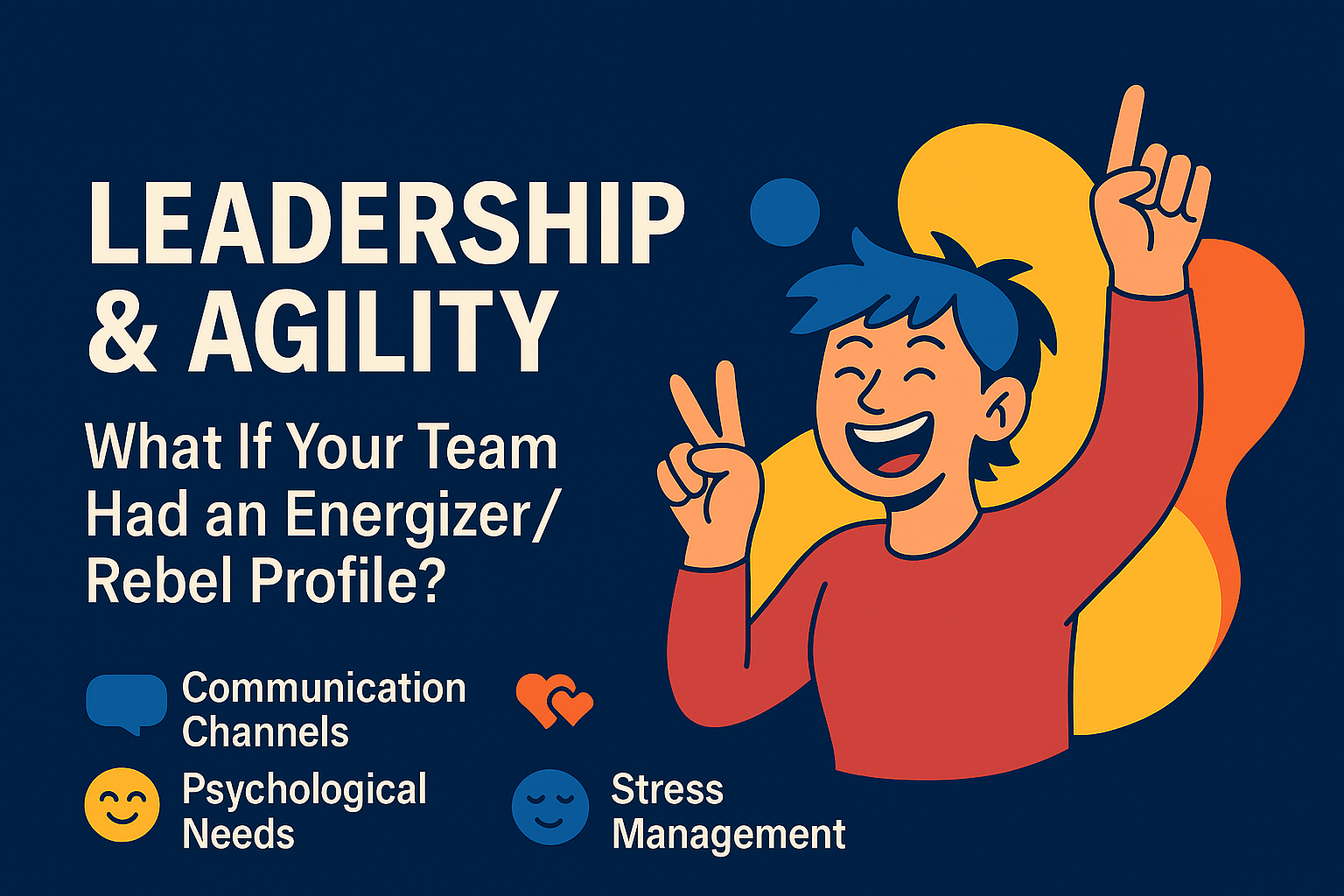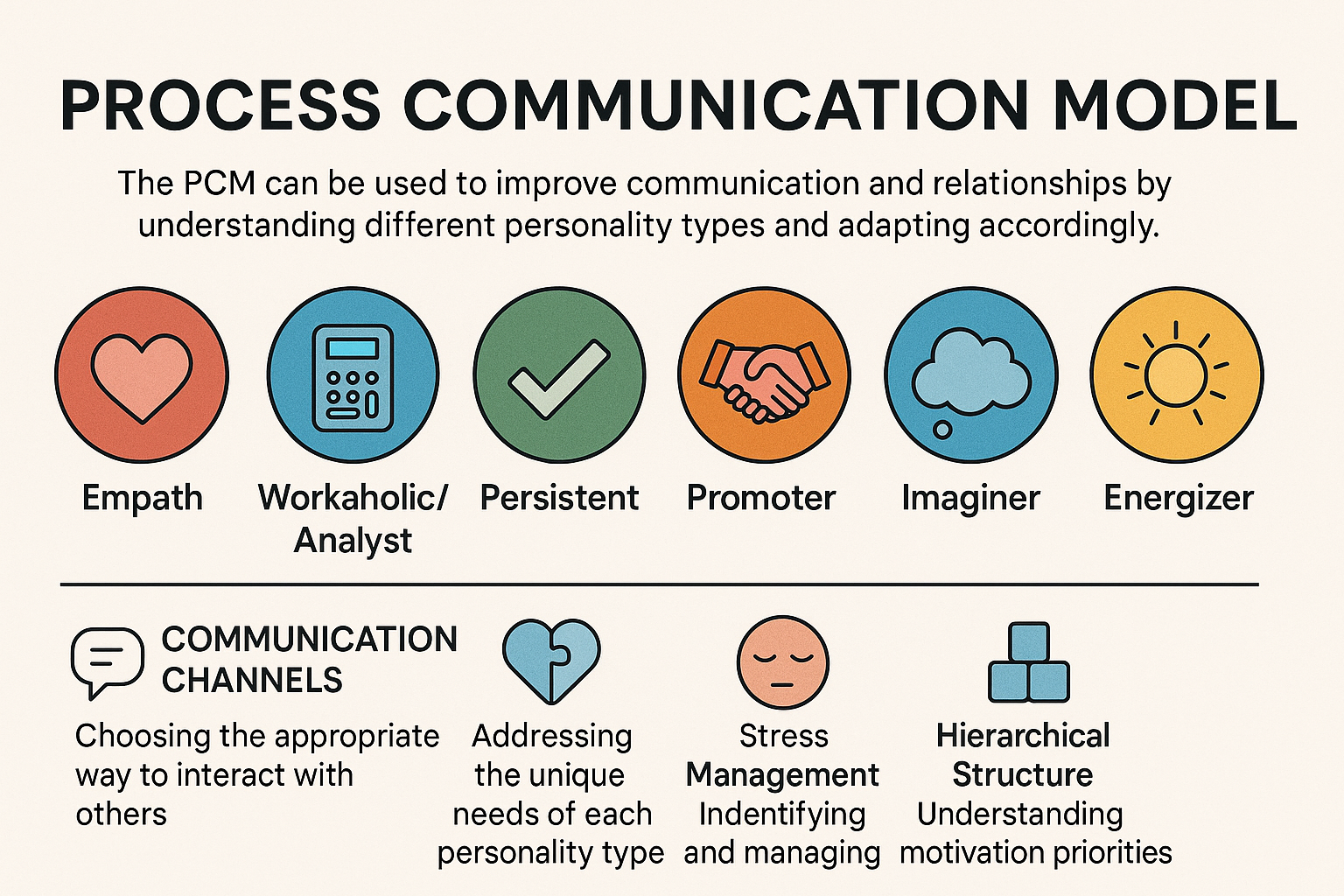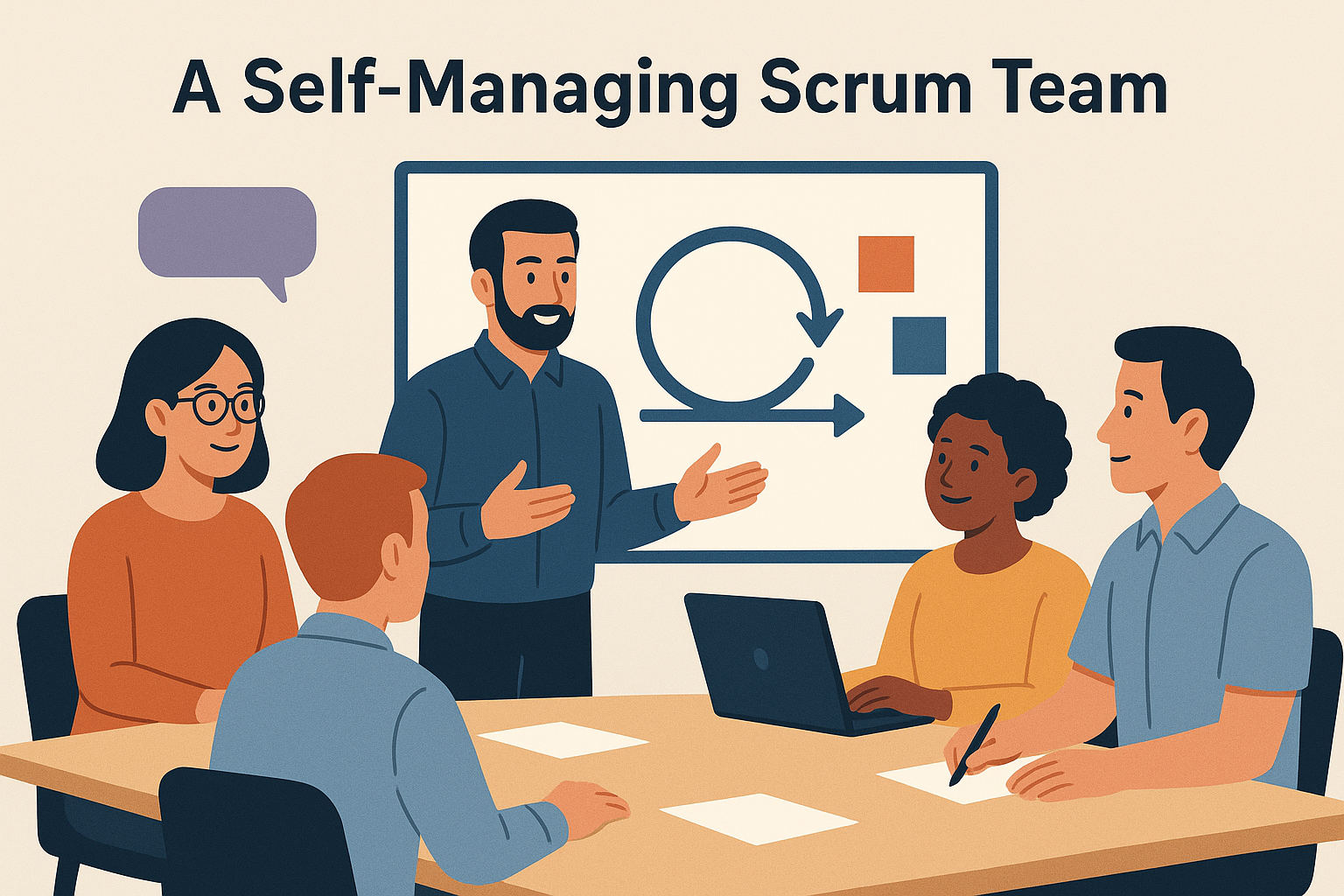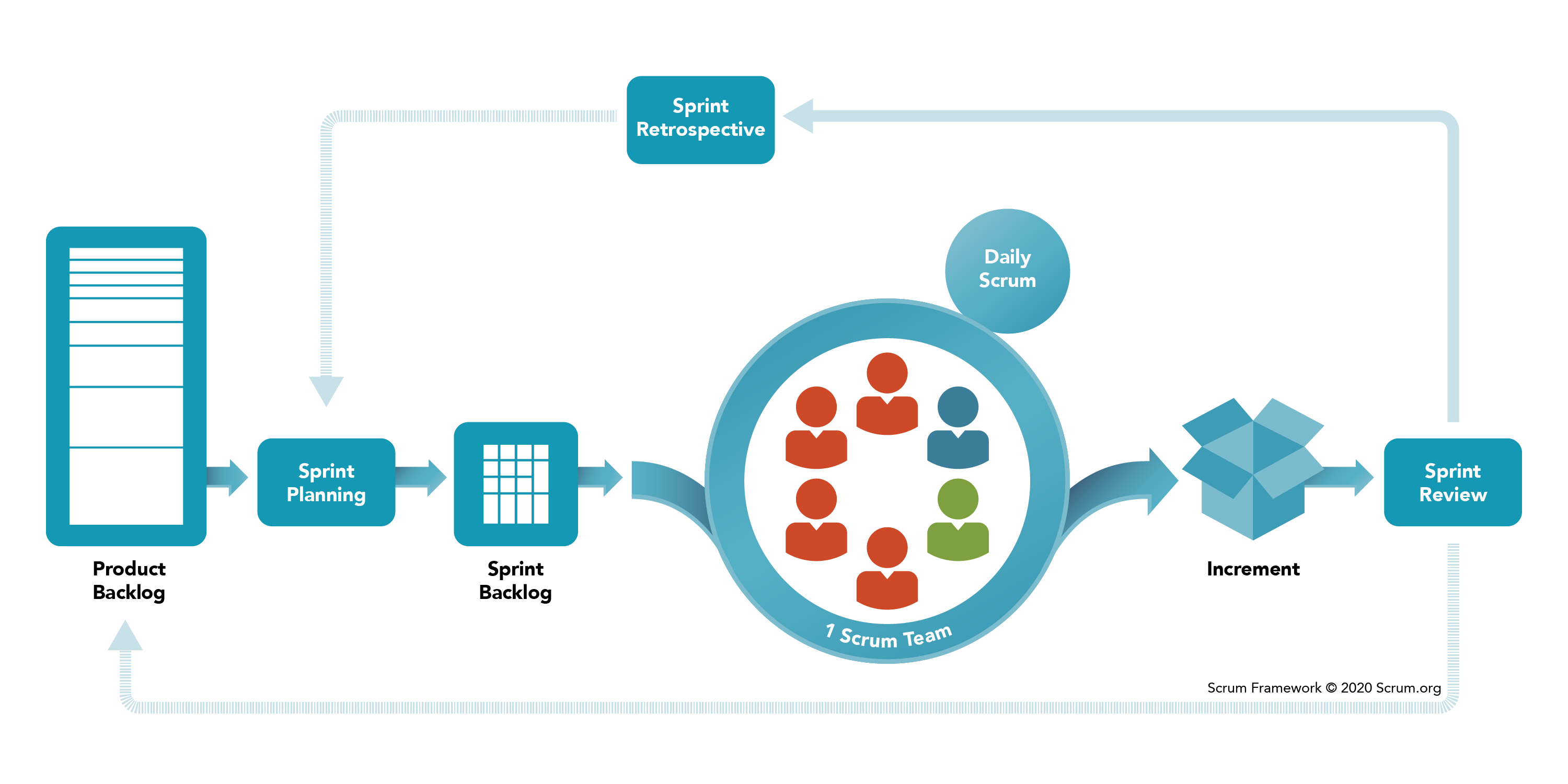"The secret to a high-performing team lies not just in its processes but in the ability to understand each individual."

Being a trainer also means learning from participants. During one of our Professional Scrum Master training sessions, a learner shared the "Energizer/Rebel" concept from Process Communication®.
We delved deeper and decided to share this topic with you, as it sheds light on leadership and management, helping to achieve better results with teams.
What is Process Com®?
Process Communication® (often called Process Com® or PCM) is a communication and management model created by psychologist Taibi Kahler. It was originally developed in collaboration with NASA to help train and select astronaut teams to improve their collaboration and prevent conflicts.
Its main goal is to better understand one's own personality and that of others to adapt communication and make it more effective, especially in stressful situations.
The Process Communication model is based on several concepts:
- Six personality types: Process Com® identifies six personality "types" (Empath, Workaholic/Analyst, Persistent, Promoter, Imaginer, and Energizer). Each person has these six types within them, but in a unique hierarchical order. One type is dominant ("the base"), while the others are present to a lesser degree.
- Communication channels: Each personality type has a preferred way of communicating (e.g., a specific tone, vocabulary, or posture). By using the "right" channel, you increase the chances that your message will be well-received.
- Psychological needs: Each type has specific psychological needs. For example, the Analyst needs recognition for their work, while the Empath needs recognition for who they are as a person. When these needs are not met, it can trigger stress behaviors.
- Stress management: The model helps to identify signs of stress in oneself and others to avoid conflicts and return to constructive communication.

In this post, we’ll focus on the 'Energizer/Rebel' personality type.
What are the characteristics of a team member with a dominant 'Energizer / Rebel' personality type?
Process Com’s work teaches us that these are generally individuals who have a highly developed ability to thrive by making others laugh, bringing humor and a joyful atmosphere to every environment they're in. They excel at joking and reacting spontaneously to events. They are externally playful, creative, and visual.
As we know, we all have psychological needs to fulfill. For individuals with a dominant Energizer base, this includes a particular need for playful interaction and a dynamic atmosphere in their lives. This also translates to a cool and relaxed work environment, as well as colorful, lively, and engaging learning spaces. They will naturally expect others to react to their actions and will thrive when stimulated by their colleagues.
🎯 For managers and Scrum Masters, understanding this profile is a unique opportunity!
As a manager, using visual management can be a great way to boost their engagement and sense of initiative.
A few years ago, as consultants, we had the chance to work with a team member who, in retrospect, we can identify as an Energizer.
When she joined the team, communication greatly improved. Her expectations were clearly stated, she knew how to speak up when something was wrong, and she offered advice to anyone who needed it. She was spontaneous and always brought her enthusiasm to the team. She couldn't stand it for long when things weren't going well. In short, she was definitely not the type of person to go unnoticed on a team.
Stimulating engagement, empowering the team, and strengthening team members' agility.
In retrospect, and based on our experience with Process Communication—specifically the Energizer profile (formerly known as the Rebel)—we see a clear link to the efficiency responsibilities of a Scrum Master for a team that includes this personality type.
First of all, it's a huge asset for a team to have a person like this. Due to their extremely cheerful nature, they can be a ray of sunshine for your team, energizing meetings and helping to maintain a great atmosphere.
Their love for visuals, colors, sharing, mutual support, and leadership can truly improve your team's dynamic. This greatly contributes to empowering team members.
Empowerment (and even self-management, when well-guided) is very important in the Scrum framework to help teams become autonomous, make decisions, and create more value. We recall that at the time, this colleague showed great courage and was the first to volunteer to lead the Sprint Retrospective, even though she was not the Scrum Master for the team.

A Self-Managing Scrum Team
This surprised the substitute Scrum Master when we were leaving. In fact, during the last sprint we followed together—to hand over the responsibilities—he was very surprised to see that on this team, any member could (and was indeed capable of) facilitating the Sprint Retrospective without anyone being surprised by it. What's more, the team members were effectively facilitating the Daily Scrum on their own, without needing the Scrum Master's daily presence.
The enthusiasm of such a person encourages other members to embrace challenges cheerfully and without worrying too much about failure. It’s important to note that this doesn't imply a lack of professionalism or critical thinking. Instead, it’s about highlighting the courage needed to try audacious approaches while accepting failures without dwelling on them. This helps create teams that are comfortable with failure, which is a necessary corporate behavior for innovation.
Within the Scrum framework, teams (team members, the Product Owner, and the Scrum Master, who is responsible for the team's effectiveness and efficiency) work in iterative loops to deliver projects (or even better, products or services).

Key Considerations
However, it is essential to be careful to protect individuals with an Energizer/Rebel trait from ineffective management. Due to their extroverted nature, they react poorly to inadequate management that is not adapted to their personality style's needs. And because they are very expressive, this can negatively and very quickly impact the entire team.
It will also be very important to protect the rest of the team from their spontaneity, which can be a double-edged sword if not well-guided.
Conclusion
To account for the personality styles of Process Com (whether it's the Energizer or the other 5) within your organization or company, and to create a framework conducive to good collaboration, the Scrum Master should:
- Become more protective of the team by working very closely with their manager to ensure the particularities of all team members are recognized.
- Work carefully with the team to create a healthy and fulfilling psychological environment for everyone (all personality styles).
In our experience, three elements have proven to be very useful for maintaining a responsible yet playful framework where everyone feels fulfilled in their work.
These were:
- Increased communication with the team
- Further empowering team members
- Regularly valued and revisited "team working agreement" workshops
Ultimately, Process Communication is a tremendous tool for individual coaching to better know oneself (one's communication channels and expectations) and for team coaching to improve team communication, and prevent and manage conflicts.
To read more on the subject: https://lemanskills.com/process-communication-model-pcm-rebel/ or https://www.metamorphoses.be/fr/ressources/process-com/process-com-rebelle https://guillemettemoreau.com/energiseur-rebelle-process-communication-pcm-processcom/
Questions for Action
- What stood out to you in this article?
- What actions do you think you can implement yourself, based on your personal and professional roles?
- When will you get started?
To train yourself or your team on implementing the Scrum framework and complementary Agile Practices, click here: discover our training courses.
